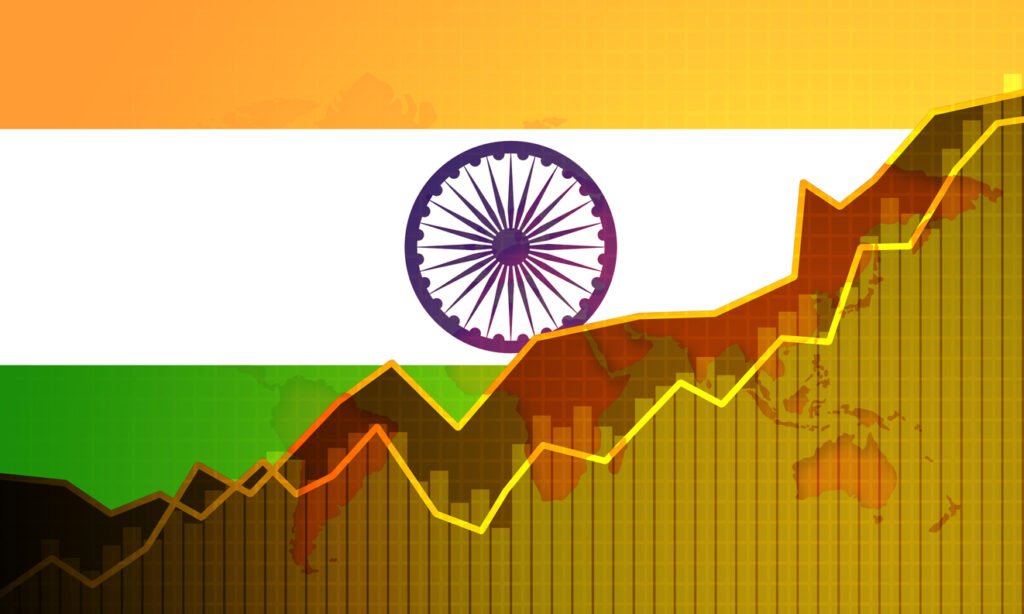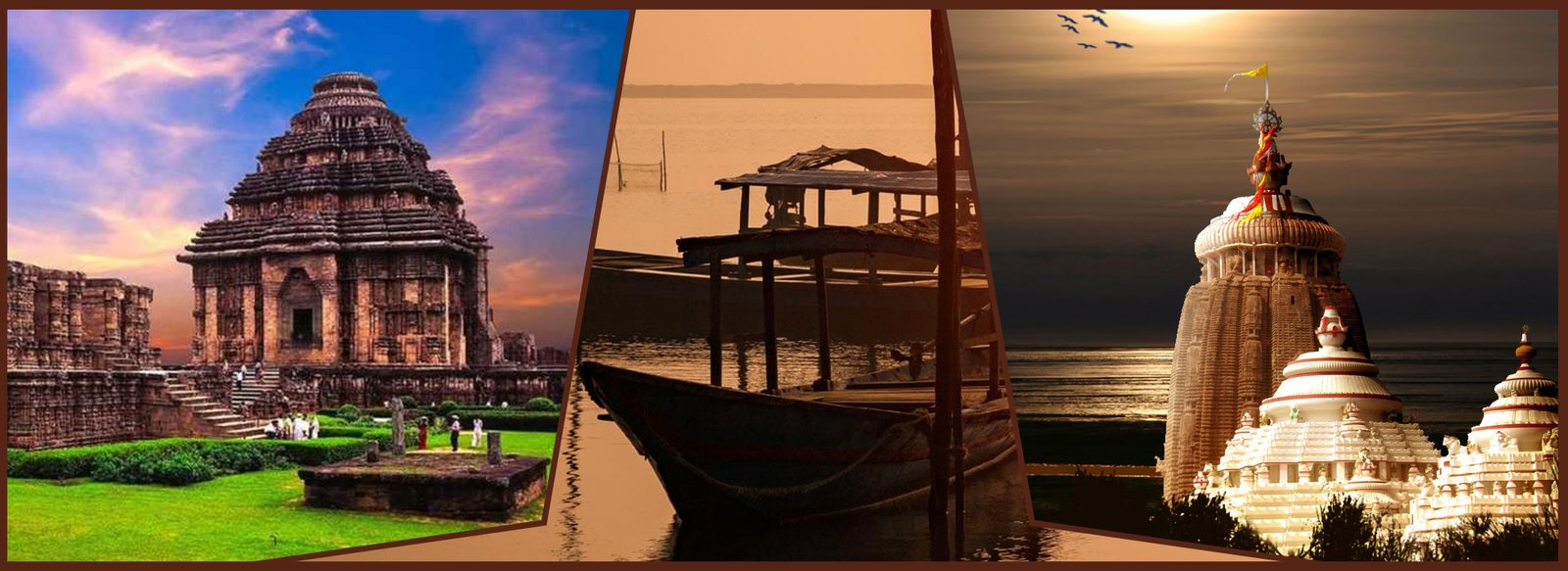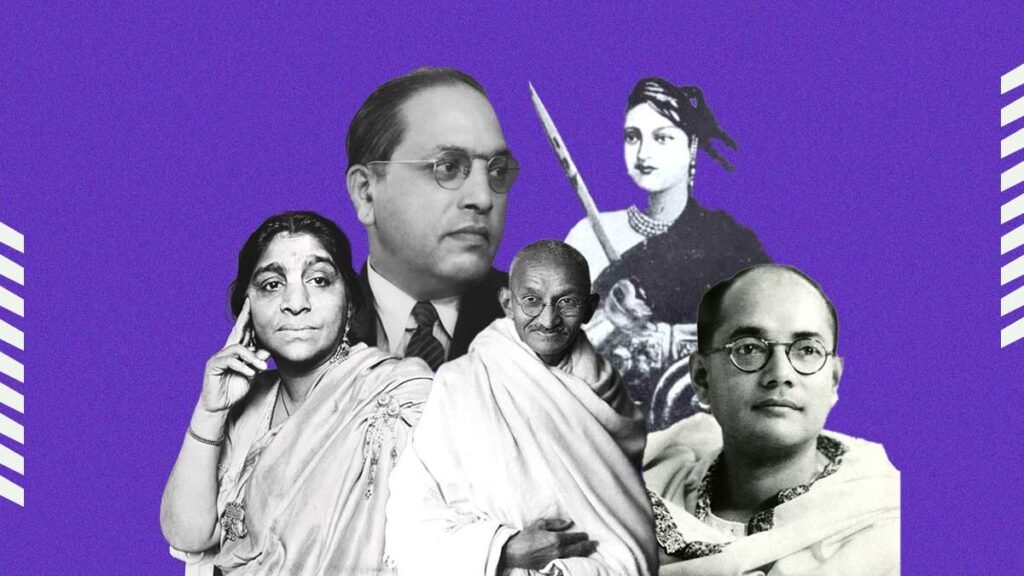
INDEPENDENCE DAY OF INDIA ( INTRO )
Independence Day in India is a significant national holiday celebrated on August 15th each year. It commemorates the day in 1947 when India gained independence from British colonial rule after a long and arduous struggle for freedom. This day holds immense historical and cultural importance for the people of India, and it is marked by various events and ceremonies throughout the country.
Historical Background: The struggle for Indian independence spanned several decades and was characterized by non-violent resistance, civil disobedience, and mass movements led by prominent leaders like Mahatma Gandhi, Jawaharlal Nehru, Subhas Chandra Bose, and many others. After years of protest and sacrifice, India finally achieved its goal of independence on August 15, 1947, when the Indian Independence Act 1947 was enacted, leading to the partition of India into two separate nations, India and Pakistan.
Significance of Independence Day: Independence Day is a day of national pride and patriotism in India. It symbolizes the triumph of India’s struggle for self-rule and the end of British colonialism. The day also signifies the birth of the world’s largest democracy. It serves as a reminder of the sacrifices made by countless freedom fighters and the values of liberty and equality that the nation stands for.
Celebrations: The main Independence Day celebration takes place in the capital city of New Delhi, where the Prime Minister of India hoists the national flag at the Red Fort. This event is attended by thousands of people and is broadcasted nationwide. The Prime Minister’s speech on this occasion outlines the country’s progress, challenges, and future goals.
Throughout India, flag hoisting ceremonies are held in schools, government offices, and various public places. People dress in the tricolors of the Indian flag (saffron, white, and green) and participate in cultural programs, parades, and patriotic songs. Kite flying is also a popular activity during Independence Day.
Cultural Diversity: India’s diversity is on full display during Independence Day celebrations, with various states and regions showcasing their unique cultures, traditions, and folk dances. The occasion is an opportunity for Indians to come together as one nation while celebrating their rich heritage.
Independence Day in India is a day of remembrance, reflection, and celebration. It is a time when the nation pays tribute to its past heroes and looks forward to a brighter future. The spirit of unity and patriotism that fills the air on this day is a testament to the enduring strength and resilience of the Indian people.
The Struggle for Freedom
Colonial Subjugation and Resistance
The colonial rule of the British East India Company was met with opposition right from the start. Indians began to voice their concerns against exploitation, discrimination, and cultural suppression. Leaders like Mahatma Gandhi, Jawaharlal Nehru, and Subhas Chandra Bose emerged as key figures in the struggle for independence.
Nonviolent Resistance and Salt March
Gandhi’s philosophy of nonviolent resistance gained prominence, and his iconic Salt March in 1930 became a turning point in India’s fight for freedom. Millions of Indians joined him in his peaceful protest against the British salt tax, showcasing the power of unity and nonviolence.
Partition and Independence
The road to independence was paved with challenges. The Indian National Congress and the Muslim League played pivotal roles in negotiating with the British for India’s freedom. However, the partition of India in 1947 led to the birth of two nations, India and Pakistan, along religious lines. While India achieved its long-awaited independence, the joy was accompanied by the sorrow of partition.
Independence Day Celebrations
Flag Hoisting and Parades
Independence Day celebrations commence with the hoisting of the national flag by the Prime Minister at the Red Fort in Delhi. The event is attended by thousands and watched by millions across the nation. Military parades, cultural performances, and patriotic songs further enrich the celebrations.
Tri-Color Spirit
The spirit of independence is beautifully represented by the tricolor – saffron, white, and green – of the Indian flag. People adorn themselves in these colors, buildings are illuminated, and streets are adorned with flags, showcasing unity in diversity.https://pocketnews.in/unlocking-the-potential-profitable-online-ecommerce-business-ideas-for-success/
Cultural Diversity
India’s diverse culture is showcased during these celebrations. Different states present their unique traditions, dances, and art forms, portraying the rich tapestry of Indian heritage. This celebration of diversity emphasizes the unity that binds the nation together.
Significance of Independence Day
Reflection and Gratitude
Independence Day serves as a time for reflection, where citizens remember the sacrifices made by freedom fighters who laid down their lives for the nation’s freedom. It’s also a day to express gratitude for the peace and prosperity that independence has brought.
Reaffirming National Identity
The day is a reminder of the shared values, aspirations, and identity that unites every Indian regardless of their background. It instills a sense of pride and responsibility towards the nation’s progress.
Education and Inspiration
Schools and colleges organize special programs to educate students about the struggles of the past and the importance of democracy, equality, and justice. It’s a time to inspire the younger generation to uphold the principles for which the nation was built.
ALSO READ77 Years of Liberation: Captivating Banner Designs and Quotes to Celebrate India’s Independence Day
Independence day of India Quotes
Here are some quotes related to Independence Day in India:
- “Long years ago, we made a tryst with destiny, and now the time comes when we shall redeem our pledge, not wholly or in full measure, but very substantially. At the stroke of the midnight hour, when the world sleeps, India will awake to life and freedom.” – Jawaharlal Nehru
- “Freedom is never dear at any price. It is the breath of life. What would a man not pay for living?” – Mahatma Gandhi
- “Let us together commence a journey of peace, harmony, and progress in South Asia.” – Atal Bihari Vajpayee
- “Swaraj is my birthright, and I shall have it.” – Bal Gangadhar Tilak
- “In the truest sense, freedom cannot be bestowed; it must be achieved.” – Franklin D. Roosevelt
- “At the dawn of history, India started on her unending quest, and trackless centuries are filled with her striving and the grandeur of her success and her failures. Through good and ill fortune alike, she has never lost sight of that quest or forgotten the ideals which gave her strength.” – Jawaharlal Nehru
- “Freedom is not worth having if it does not include the freedom to make mistakes.” – Mahatma Gandhi
- “India is, the cradle of the human race, the birthplace of human speech, the mother of history, the grandmother of legend, and the great-grandmother of tradition.” – Mark Twain
- “This nation will remain the land of the free only so long as it is the home of the brave.” – Elmer Davis
- “May the sun in his course visit no land more free, more happy, more lovely, than this our own country!” – Sardar Bhagat Singh
These quotes reflect the spirit of freedom, patriotism, and the significance of Independence Day in India.
Independence Day Slogans
Here are some slogans commonly associated with Independence Day in India:
- “Jai Hind!” (Victory to India!)
- “Vande Mataram!” (I salute the Motherland!)
- “Inquilab Zindabad!” (Long live the revolution!)
- “Sare Jahan Se Achha, Hindustan Hamara!” (Our India is the best in the world!)
- “Aazadi Ka Jashn, Bharat Ki Shaan!” (Celebrating Freedom, India’s Pride!)
- “Unity in Diversity: India’s Strength, India’s Pride!”
- “Proud to be Indian!”
- “One Nation, One Vision, One Identity!”
- “Let’s Salute the Nation on Independence Day!”
- “Freedom in Mind, Faith in Words, Pride in our Heart, Memories in our Souls. Let’s Salute the Nation on Independence Day!”
These slogans capture the essence of patriotism, unity, and the celebration of India’s hard-fought independence. They are often used during Independence Day celebrations to inspire and unite people across the nation.
Conclusion
Independence Day of India is more than just a public holiday; it’s a day of remembrance, celebration, and unity. It’s a testament to the power of ordinary citizens coming together to achieve extraordinary feats. As the nation continues to grow and evolve, the spirit of independence remains alive, reminding us of the journey from subjugation to sovereignty.


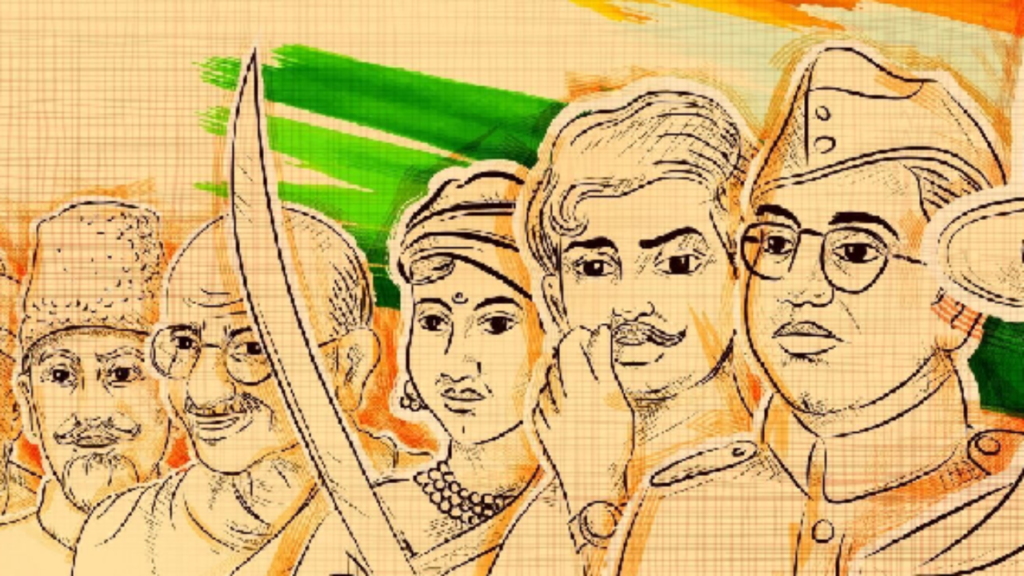
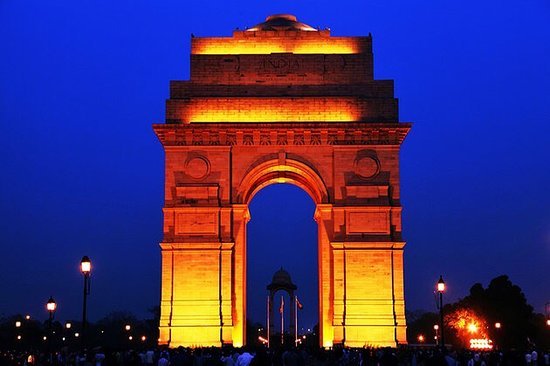
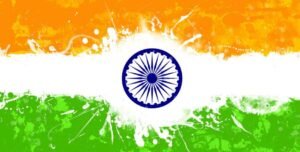
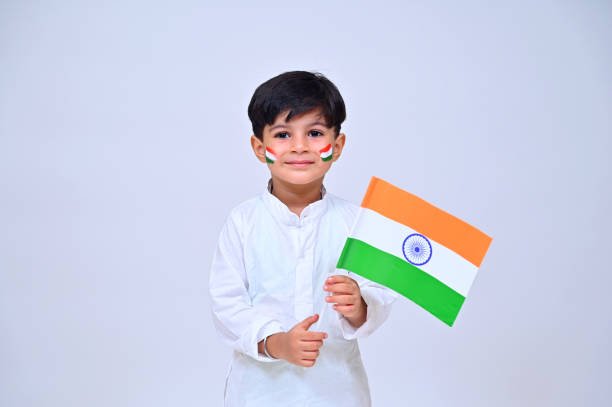
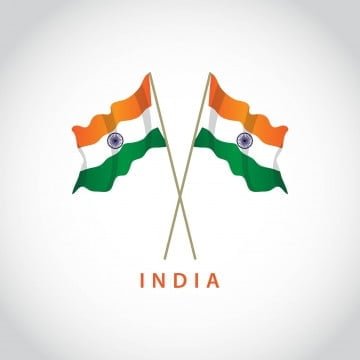
FAQs
Here are some frequently asked questions (FAQs) related to Independence Day in India:
1. When is Independence Day celebrated in India?
- Independence Day in India is celebrated on August 15th each year.
2. Why is Independence Day celebrated on August 15th?
- August 15, 1947, is the day when India gained independence from British colonial rule. It marks the end of British rule and the beginning of India as a sovereign nation.
3. What are the key events that took place on the first Independence Day in 1947?
- On the first Independence Day, the Indian national flag was hoisted at the Red Fort in New Delhi, and Jawaharlal Nehru, the first Prime Minister of India, delivered the famous “Tryst with Destiny” speech.
4. Who hoists the national flag on Independence Day in India?
- The Prime Minister of India hoists the national flag at the Red Fort in New Delhi. Chief ministers of states and other dignitaries also hoist the flag in their respective regions.
5. What happens during the Prime Minister’s speech on Independence Day?
- The Prime Minister’s speech typically reflects on the nation’s progress, achievements, challenges, and future goals. It is broadcasted nationwide and is an important part of the Independence Day celebration.
6. How is Independence Day celebrated across India?
- Independence Day is celebrated with flag hoisting ceremonies, parades, cultural programs, and patriotic songs in schools, government offices, and public places. People often wear the tricolors of the Indian flag.
7. Are there any special traditions or customs associated with Independence Day in India?
- Kite flying is a popular tradition on Independence Day, especially in northern India. Various cultural events and exhibitions are also organized to showcase India’s diversity and heritage.
8. Is Independence Day a national holiday in India?
- Yes, Independence Day is a national holiday in India, and most businesses, schools, and government offices remain closed on this day.
9. Are there any security measures in place during Independence Day celebrations?
- Yes, there are extensive security arrangements during Independence Day celebrations, especially in sensitive areas and in major cities to ensure the safety of participants and the public.
10. What is the significance of Independence Day for the people of India?
– Independence Day is a day of national pride and patriotism, symbolizing the hard-fought freedom from colonial rule and the birth of the world’s largest democracy. It serves as a reminder of India’s values of liberty and equality and the sacrifices made by freedom fighters.
https://en.wikipedia.org/wiki/Independence_Day_(India)
also read about Indian Economy at a Glance
